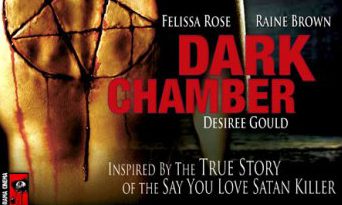In the early 2000s, murder mystery films began abandoning the simplistic crime and drama angle in favor of complex psychological twists. Although incredible hits such as Identity (2003) and Shutter Island (2010) brought fresh angles to the murder mystery subgenre, it is always fun to see a film reminiscence of old school noir detective stories. Dave Campfield creates just this for his first full length feature release, 2006’s Dark Chamber (AKA Under Surveillance).
Having spent the last 10 years living with his heavily medicated mother, Justin Besler (Eric Conley) decides to pursue his studies of law enforcement while living with his father, Detective Kurt Besler (David Rigg). However, when Justin arrives at his father’s home, he discovers that he is not the only tenant. Renovated to support three apartments added onto the house, he finds himself living next to five shady neighbors.
Soon after his father begins looking into a cult called The Black Circle, Justin discovers a dead body on the premises in the middle of the night. Questioned by his father the next day, Justin is convinced the police are looking in the wrong place to solve this crime. As suspicion of his neighbors grows, the aspiring young detective and his friend, Scott (Fred Dereau), discuss the possibility that the killer might be living under his roof.
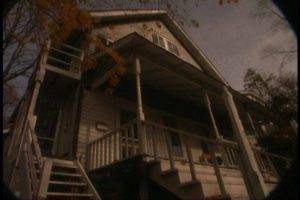
Overhearing the conversation, Scott’s sketchy entrepreneur of a roommate, Rick (Writer/Director Dave Campfield), offers a solution to Justin’s problems. Using pinhole surveillance cameras with wireless connections, the trio secretly monitors the comings and goings of the building’s tenants from a van across the street. The longer they are watched, the more suspect everyone in the house becomes. However, when bodies begin to drop once more, the truth unravels in a surprising climax and an unforeseeable twist.
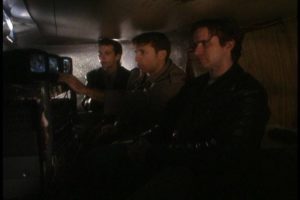
With a shoestring budget, the production quality of Dark Chamber has a rough look that fans of indie features know and appreciate. However, some simple yet creative camerawork is used to help smooth things over, along with color to black and white transitions that truly add to the old school noir look and feel. The real substance, however, can be found in the story and cast performances.
Featuring so many character backstories crammed into a runtime of 1 hour and 29 minutes, the film almost takes on more than it can chew. However, minus a small insignificant plothole, focus is maintained through clever plot development. Though it may disappoint gore hounds, Dark Chamber takes on the true spirit of murder mysteries, not through blood and brutality, but by crafting misdirection and suspense from beginning to end for a blindsiding final reveal.
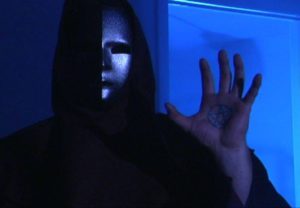
Helping hold the story together is a surprisingly talented cast, many of whom were relatively new to film at the time. Conley seems like a natural, aptly portraying a young college student orchestrating his own investigation, while Rigg is believable as a detective who places police procedure by the wayside. Mark Love gives a phenomenal performance as a dirtbag tenant desperate to make it in show business by any means necessary, while Christopher Cooke is great as a rude and crude tenant with an attitude. Of course, the most recognizable face in Dark Chamber is the great Felissa Rose (Sleepaway Camp, Victor Crowley) who owns her role as the promiscuous tenant with a dark past. Finally, the film’s writer and director, Dave Campfield, flexes his talent on the other side of the camera, playing to perfection his role as a dubious college student with questionable motives, all while infusing a few laughs along the way.
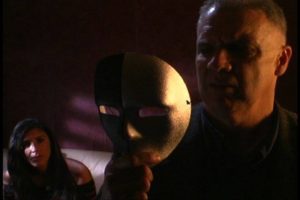
While Dark Chamber has a rough appearance at times, its cleverly crafted plot development sparks intrigue. Backed with a talented cast and dramatic twist of a conclusion, the film’s payoff is worth the time for any film buff that admires independent work. While blood, gore and brutality can be fun, by choosing to root itself in mystery and suspense, this independent gem is a nice throwback to classic murder mysteries.
 PopHorror Let's Get Scared
PopHorror Let's Get Scared
